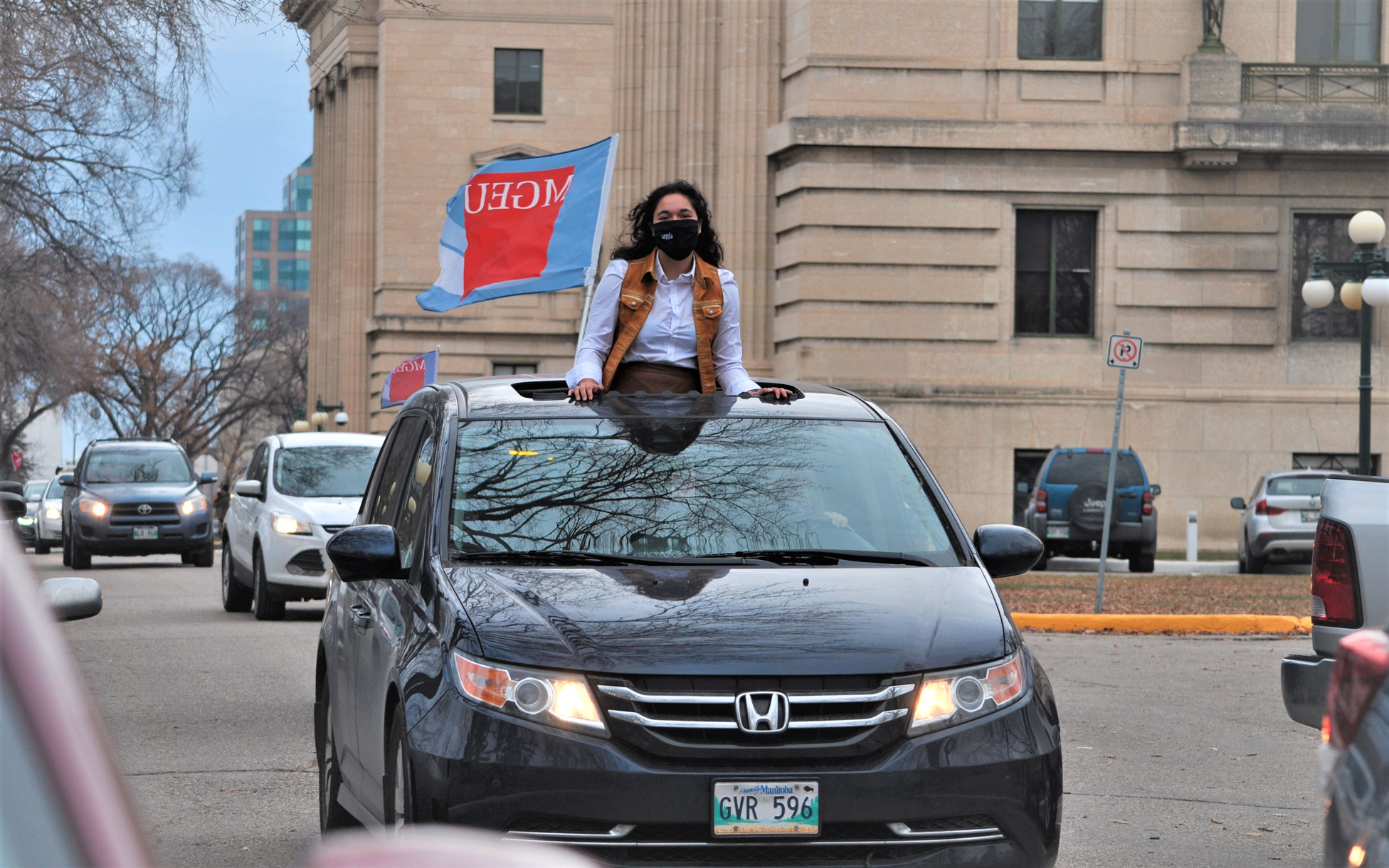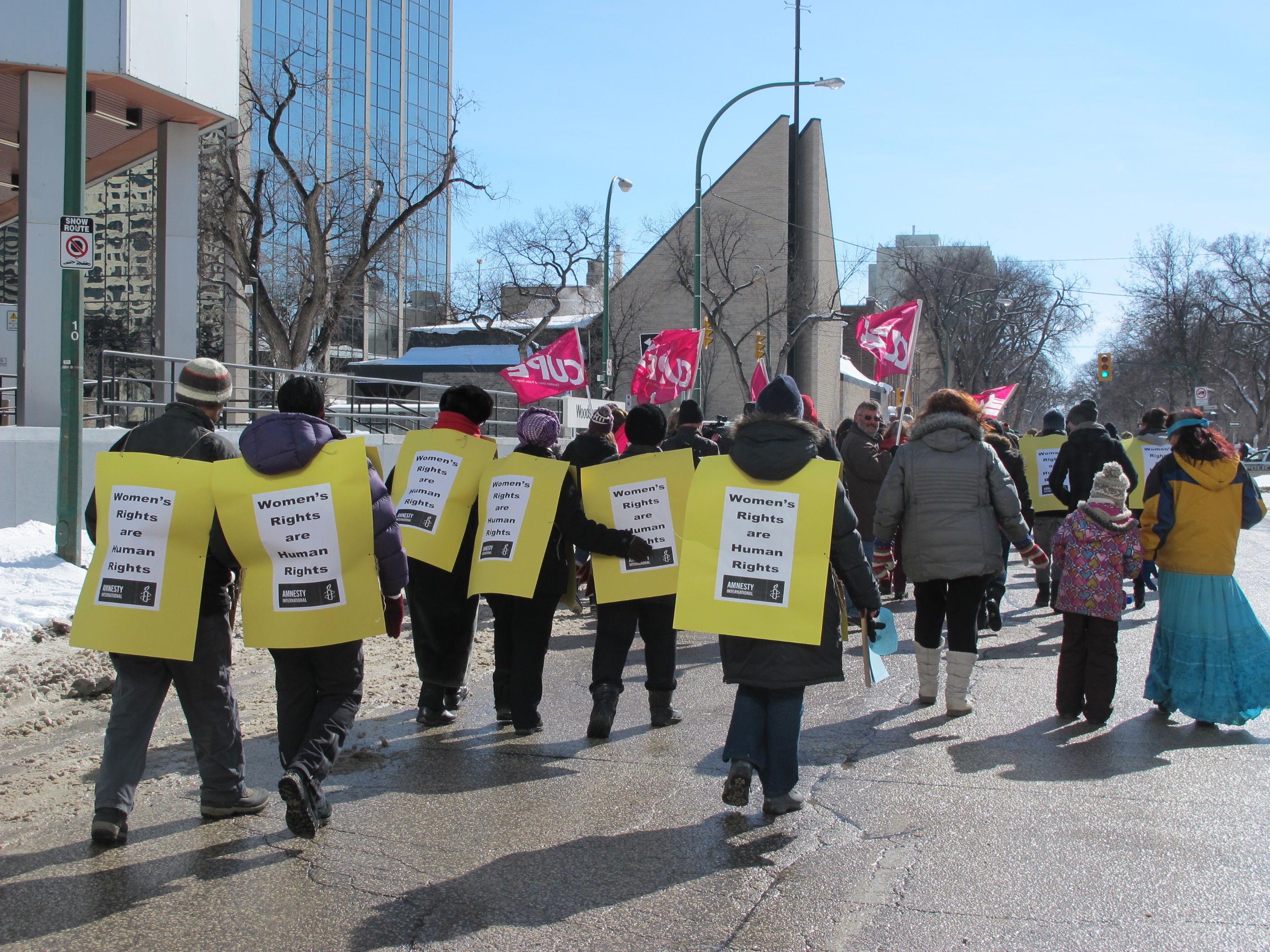Mayoral candidate Judy Wasylycia-Leis proposed starting a youth advisory committee at city hall to give students have more of a voice on decisions made by the city, if elected mayor.
“[Young people] have so many ideas that need to be considered,” said Wasylycia-Leis at Wednesday’s debate at the University of Winnipeg.
Candidates Brad Gross and Rav Gill were also present at the debate. Mayor Sam Katz was not present, although a seat had been reserved for him.
She explained that the committee would be composed of young people who are active in their communities around Winnipeg, including representatives from the students associations at the University of Manitoba and University of Winnipeg.
Wasylycia-Leis also stated that she would like the committee to be representative in terms of race, sexual orientation, sex and occupational expertise.
“I think it’s important for us to have that cross-cultural dialogue happening at the youth level and capture the full essence of our community,” said Wasylycia-Leis.
Other initiatives Wasylycia-Leis would like to implement if elected in an effort to get students more involved in city hall include broadcasting town hall meetings online and developing a youth plan to make Winnipeg a more youth-friendly city.
The plan would focus on several areas, including transit, safety, and housing, but with a youth perspective in mind.
When asked what kinds of policies he thought would energize students to become more active in civic politics, Gross proposed giving those with students loans a discount on their property taxes. He also stressed the importance of the student vote in the upcoming election.
“Voting is powerful; we need students to vote to make change or we’re going to have this city getting worse and worse.”
Gill criticized his opponents for making promises to students that were unrealistic in their campaigns. When asked what issue students feel the most strongly about in this election, Gill stated that he believed it was improving public transit.
Although the voter turnout is generally low among the student population, Wasylycia-Leis stated that having students vote is critical in ensuring that their voices are heard.
“You just have to look at the fact that we’re in a tight two-way race. Every vote’s going to count in determining the future of this city,” said Wasylycia-Leis. “[ . . . ] We’re at a cross roads in many ways and the voices of young people and their perspective is critical to which path we take. I need their voices and I think the city needs their voices.”
Sophia Sengsuriya, a student studying interior design at the U of M, decided to attend the debate to hear what the candidates had to say on the topics of infrastructure, city planning and transit.
She thought that students tend to be apathetic when it comes to politics because they “don’t realize they can make a difference.”
However, Sengsuriya explained that she was excited to vote in the upcoming election.
“As soon as I got out of high school, I was like ‘Oh, I get to vote!’” said Sengsuriya. “I was excited, and we take it for granted. It’s just there for us [ . . . ].”
Advanced polling stations are now closed. Winnipeg citizens can find out more information on polling station locations at www.winnipeg.ca.



